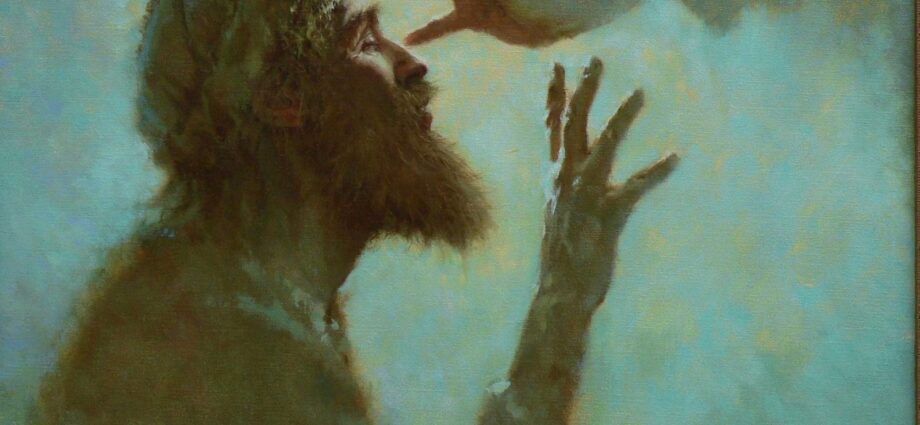A lot of the time, when we encounter this particular Gospel, we focus on what Jesus did. He healed a blind man. Giving sight to the blind is indeed a miracle worth talking about. I want to focus a little bit on what the blind man, Bartimaeus, did to receive that healing.
It says that he kept calling out for Jesus. Then when Jesus acknowledge him, Bartimaeus threw aside his cloak, sprang up, and went to Him. The cloak is a beggar’s most prized possession. It’s his home, his blanket, all he has to his name. It was so important to the beggar that the Israelites had a law that forbade an Israelite from keeping someone’s cloak overnight, even if they used it to barter in place of money.
Bartimaeus says he wants to be able to see again. The interesting thing is that the word there means “to look on high.” But to look on high, one has to be able to raise one’s head. Bartimaeus was indeed asking for his sight back but also for his dignity. He left behind everything he had in this world to go the feet of Jesus. Jesus frees him from his shackles and tells him to go on his way.
But notice, once Bartimeus has his sight and dignity restored; he doesn’t just go on his way. No, it says, “he received his sight and followed [Jesus] on the way.” Bartimeus shows us in his actions exactly how we should respond to anything that holds us back. If anything or anyone is pulling us down, drawing us away from Jesus, even if it is our most prized possession, we throw it off. We turn to Jesus, who frees us from addiction, from shame, from guilt. Then from that newfound freedom, we don’t turn back to the world but rather “follow Him on the way.”

